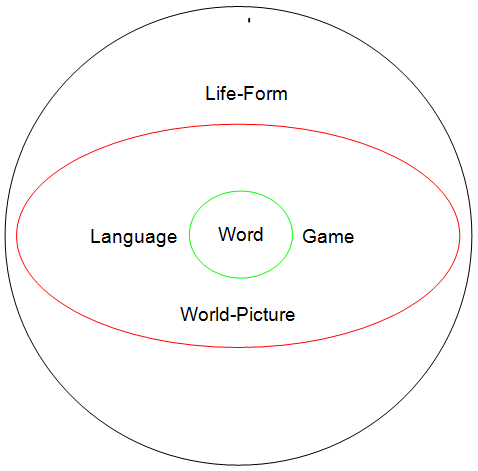
Wittgenstein's philsophy of language shows that meaning stems from an actual life form, from the way people use words in evedreyday life, and not from abstract definitions. His insights provide a unique point of view on the nature of Halakha.
Eli Friedman
Much has been written in recent years on the ‘Philosophy of Halakha’, a flourishing topic amongst scholars of Jewish Thought, including Avi Sagi,1 Avinoam Rosenak,2 Moshe Halbertal,3 Chaim Saiman,4 and others.
It is difficult, though, to view the ‘Philosophy of Halakha’ as an independent subject, as its ambition compels it to borrow from other modes of thought. In other words, the ‘Philosophy of Halakha’ is an exercise in reflecting on the Halakhic discourse in an attempt to understand its forms and development.
Thus far, the Philosophy of Halakha has turned to various subjects, such as law,5 the philosophy of education,6 the philosophy and history of science,7 sociology and anthropology.8 The process is usually similar. It attempts to apply theoretical frameworks from other disciplines to draw out the hidden implications of the Halakhic discourse.
In this essay, I would like to turn to a different mode of thought that has received recognition for its possible contribution to Halakhic thought, but has yet to fulfill its potential. The philosophy of language, as it is expressed in the later thought of Ludwig Wittgenstein, the important 20th century Austro-British philosopher, can serve to as a fertile framework for more deeply understanding Halakha.9
In this essay I will endeavor to lay out the important elements of Wittgenstein’s philosophy, tracking its development from his early work, the ‘Tractatus Logico-Philosophicus’, to later works such as ‘Philosophical Investigations’ and others.10
Afterwards, I will propose two approaches to the philosophy of Halakha, which draw upon different currents of Wittgenstein’s thought. In light of our study of Wittgenstein, we gain the ability to better understand Halakha, as a ‘living language’. In particular, his thought helps to illuminate the life-world of Halakha, the act of Talmud Torah, and the role of the Halakhic decisor or posek in bridging between the two.
I will then turn to three Halakhic case studies. In each one, the application of Wittgenstein’s thought will deepen our awareness of how to properly understand the law. Finally, I will propose, important insights regarding Jewish life, which I believe have much to contribute to the dilemmas of our day.
c
A. The Later of Philosophy of Wittgenstein: Linguistic Meaning as Everyday Use
Ludwig Wittgenstein (1889-1951) was one of the most influential philosophers of the 20th century with an interest in the philosophy of language, science, and mathematics. In 1921, his major work, ‘Tractatus Logico-Philosophicus’, was released. With this work, he felt that he had solved all the problems of philosophy. He claimed that logic – and the language in which it is embedded – has the potential to accurately represent the world around us. Every expression we utter carries within it explicit meaning about the state of affairs of the world it seeks to depict.11 Wittgenstein concludes his book with the famous passage, ‘Whereof one cannot speak, thereof one must be silent’, and in doing so, draws a total equivalence between the limits of logic and the limits of language. When I say ‘There is food in the refrigerator’, my language is reporting on the state of affairs out there in the world as it truly is. If you open my refrigerator, you will in fact find food inside. Language is the picture of reality.
Later in life, Wittgenstein underwent an internal revolution, and (seemingly) made a complete reversal regarding his perception of language. In 1953, two years after his death, ‘Philosophical Investigations’ was released, containing the new linguistic theory that he had begun to develop in already in the 1930s. In ‘Philosophical Investigations’, Wittgenstein takes to a much more nuanced and modest approach to language.
‘The meaning of a word’, claims Wittgenstein, ‘is its use in the language’.12 Words are not accurate pictures of reality. They are utterances and expressions that give and receive meaning from the contexts in which they are used.
‘Philosophical Investigations’ opens with a quote from Augustine’s ‘Confessions’, which introduces the linguistic method that Wittgenstein seeks to confront, ‘Every word has a meaning. This meaning is correlated with the word.’13 Wittgenstein assumes in Augustine’s name that the meaning (of a word) ‘is the object for which the word stands.’ Those who seek to acquire language must first learn the meaning of each word. Wittgenstein illustrates the Augustinian method by describing a situation that will also serve as a critique of the Augustinian approach to language.
Wittgenstein writes
Let us imagine a language for which the description given by Augustine is right. The language is meant to serve for communication between a builder A and an assistant B. A is building with building stones: there are blocks, pillars, slabs and beams. B has to pass the stones, and that in the order in which A needs them. For this purpose, they use a language consisting of the words “block”, “pillar”, “slab”, “beam”. A calls them out; B brings the stone which he has learnt to bring at such-and-such a call. Conceive this as a complete primitive language.14
In this example, each object has a word that corresponds to it. People learn the words and their meaning, such that when ‘A’ calls out ‘Block!’ the picture of a block enters ‘B’s’ mind. He recognizes the object in front of him that corresponds to the name, picks up the correct object, and passes it as commanded to ‘A’. This example, simply and elegantly, demonstrates the way in which most people understand how language works.
c
Language-Games
Wittgenstein, however, completely rejects the notion that language functions through the matching of names to the objects that they represent. The builders, in fact, do not know the meaning of the words that they use, but rather they know how to use the words. People learn the meaning of words, but the meaning of each word can only be understood within a specific context, what Wittgenstein calls a language-game. The context is what bestows the meaning upon each utterance, which is then understood by the ‘players of the game.’
How then, according to Wittgenstein, does ‘B’ know that ‘Block!’ means ‘Pass me a block!’? Indeed, ‘A’ did not tell him to pass the block. Rather, he just said ‘Block!’ According to the understanding of Augustine, upon hearing the word ‘Block!’, the builder could and should have just looked at, or thought of the block, without understanding that the speaker had actually meant ‘Pass me a block!’. The language-game, the context within which the builders are ‘playing’, is what grants ‘B’ with the proper of understanding of the word’s meaning. The builder on the construction site wearing his hard hat and uniform understands by way of the context that ‘Block!’ is meant to inform him to pick up and pass the block – so that it can properly be placed in the scheme of the building that they are working on.
Understanding a word is knowing how to use it in language properly and befitting each context and situation. If the language-game is that of a patron commissioning a portrait from an artist, then the command ‘Block!’ communicates that the artist should paint a block and not to get up and bring one, as builder ‘B’ does when he hears ‘Block!’ on a construction site.
Knowing a language is knowing how to respond to its speakers properly in each context and situation. Only one who understands the meaning of words in different contexts can be called a speaker of the language. One who attempts to determine the ‘essence’ of a word, irrespective of the context, is not a proper speaker of the language.15
A language-game not only refers to a grouping of words, but rather ‘The whole, consisting of language and the actions into which it is woven.’16 Understanding language is not just about understanding the words that come from people’s mouths but also the physical gestures, sounds, and signals that are part of any social interaction. As opposed to the Augustine, the ‘linguistic occurrence’ takes place amidst a variety of causes that can be found in a situation (dress, hierarchy, setting, body language) and not just in the technical exchanging of words between speakers.17 Actions and norms themselves operate as ‘language-games’ and their meaning is dependent on the context in which they take place. Spectators at a dance performance in which there is dancing and no words are still in a communicative event, in which they receive themes and storylines from the content of the dance along with the atmosphere. They do not need to say or hear a word in order to participate in the language-game. When they clap their hands at the conclusion, it “says it all”, and communicates to the dancers that their performance was understood and appreciated.
A game of soccer can also serve as a classic language game in which the rules are derived from their usage in the game on the field. When the player touches the ball with his hands – on the field, during the game – the meaning of the action is that the other team receives a free kick. The reason for this is that the act of touching the ball with one’s hands within the context of the game carries with it the meaning of a ‘penalty’, which is the meaning of the action in that moment for all the players and spectators of the game. Yet, the second the referee blows his whistle to signal the end of the match, any ‘player’ is free to lift the ball with his hands, and no athlete or bystander would dare think of pointing at him and shouting ‘penalty’ as they surely would do during the game. The meaning of an action is its usage within the language-game.
Wittgenstein brings another example from the game of ‘chess’.18 The ‘King’, a small piece of wood with a unique shape, carries a higher status than the other pieces on the chess board. Anyone who knows how to play chess will do all that is in his power in order to protect the ‘King’. Of course, someone who sees the ‘King’ and does not recognize its ‘superior’ status would not know how to play chess. Does the ‘King’ on the chess board have royal status in and of itself? The status of the piece is given within the context. The fine wooden chessboard in the living-room, the smaller pawns that elevate the ‘King’s’ status, the slow and tense atmosphere surrounding the game – all these components of the language-game of chess are what determines the ‘King’s’ royal status within its use in the game on the board. Once the game is over or the chess pieces have been removed from the board and the context of chess, they become ‘small and regular pieces of wood’. Someone walking in a forest that finds a piece of wood shaped like a king, did not find a ‘King’. Within the context he is in, he has found only a small and piece of wood, and he keeps on walking.

Family Resemblances and Vague Boundaries
According to Wittgenstein, meaning is embedded in contextual usage. How then can different things or words that are used in different contexts bear the same name? What do the ‘game’ of chess and the ‘game’ of soccer have in common that confers upon the both of them the title of ‘game’? The Augustinian approach looks for the ‘essence’, the meaning that lies at the core of both activities that turns them into ‘games’. Wittgenstein’s approach, however, is not looking for the ‘essence’ of the two words, but rather the ‘family resemblances,’ as Wittgenstein writes – the common denominator that expresses itself by use of words or actions within language. There is an inherent instability though to Wittgenstein’s approach since meaning is embedded in context, thus making it difficult to speak of a word or concept outside of its context!
Consider for example the proceedings that we call “games”. I mean board-games, card-games, ball-games, Olympic games, and so on. What is common to them all? Don’t say: “There must be something common, or they would not be called ‘games'” – but look and see whether there is anything common to all. For if you look at them you will not see something that is common to all, but similarities, relationships, and a whole series of them at that. To repeat: don’t think, but look! Look for example at board-games, with their multifarious relationships. Now pass to card-games; here you find many correspondences with the first group, but many common features drop out, and others appear… I can think of no better expression to characterize these similarities than “family resemblances“; for the various resemblances between members of a family: build, features, colour of eyes, gait, temperament, etc. etc. overlap and criss-cross in the same way. And I shall say: ‘games’ form a family… and this can be said to give it an indirect relationship to other things we call the same name.19
The ability to speak of a word or concept outside of its context is dependent on the speaker’s familiarity with the different contexts within which the word is used. There is a reason that both ‘tennis’ and ‘chess’ are considered games, a reason embedded in the familial resemblance of the ways in which they are used in their respective contexts. Therefore, the ‘knowing’ of the word ‘game’ outside of its context, is not the ability to define it or draw its boundaries but rather is the ability to give examples of the word within its contexts.
We naturally assume that to know the meaning of words is to know how to define them. Wittgenstein, however, claims that the knowing of words is the ability to use them, and the ability to use them is not dependent on the capacity to define them. The opposite is true! We usually know how to use a word even though is has vague boundaries or blurred edges.20 At what point do we cease to use the word ‘game’ properly regarding certain activities? This problem does not bother the speaker of a language, as he simply uses the word and doesn’t need a definition or clear boundaries.
Wittgenstein brings the game of ‘tennis’ as an example.21 It is clear to all tennis players that if the ball falls outside of the white lines, the point is over. Knowing the meaning of ‘tennis’ is the ability to play the game. That ability contains the information that the white lines (inner lines for singles and outer lines for doubles) signify the boundaries of the game. Whoever does not know this rule does not know how to play. Yet there are no rules as to how high the ball may travel! What happens when a player hits a ball up? The lack of definition, the vague boundaries and the blurred edges, do not bother the tennis player nor do they prevent him from knowing how to play tennis. There is fragility in identifying meaning as contextual usage since usage usually does not have clear boundaries. Yet this does not prevent players from playing the language-game. The meaning of a word is its use in language, even as it lacks clear boundaries and definition.
c
Everyday Use, Life-Forms, World-Pictures, and Private Language-Games
As opposed to the attempts to garb language in a metaphysical halo of objective meaning, Wittgenstein is trying to return language to its concrete everyday use. He explains that “We are under the illusion that what is peculiar, profound, essential, in our investigation, resides in its trying to grasp the incomparable essence of language. That is, the order existing between the concepts of proposition, word, proof, truth, experience, and so on. This order is a super-order between – so to speak – super-concepts. Whereas, of course, if the words ‘language’, ‘experience’, ‘world’, have a use, it must be as humble a one as that of the words ‘table’, ‘lamp’, ‘door’.”22 Language, language-games, and using language are the property of the ‘everyday‘. All concepts absorb and infuse their meaning from within the “everyday”.
The use of language and words constitutes the building blocks of what Wittgenstein calls ‘life-forms‘.23 To be part of the American culture means knowing how to order a ‘Starbucks Frappuccino’, partake in a Superbowl party, and engage in a conversation about the Democratic and Republican nominees for President. Each of these situations is a language-game in itself, but together, these language-games comprise the tapestry which is the American ‘life-form’.
A life-form is like a whole language. In Wittgenstein’s words, ‘To imagine a language means to imagine a form of life’.24 It too, does not have clear boundaries, yet it is composed of language games. Just as a word receives its meaning in a language-game, a language-game makes sense and derives its meaning from being situated in a broader context – a life form – a web of language-games that ultimately constitutes a language or a culture. ‘The term ‘language-game’ is meant to bring into prominence the fact that the speaking of language is part of an activity or of a form of life’.25
A life-form, the American one for example, is based upon certain presumptions about the world, which Wittgenstein calls ‘world-pictures‘. World-pictures comprise, ‘Above all… the substratum of all my enquiring and asserting’.26 Wittgenstein contends that all of our actions rest upon certain assumptions, which together comprise a world-picture.27 He explains that ‘World-pictures and life-forms support one another. World-pictures are the basis of our acquaintance with the reality in which we operate, and on that basis exist all of the activities that are accustomed in society.’28 Our world-picture ‘Is not a kind of seeing on our part; it is our acting, which lies at the bottom of the language-game’.29 World-pictures are the infrastructure which comprise the substantial basis for the language-games of the people that dwell inside of them.30
Taking all this into consideration, it is important to emphasize that language is not a private affair and that a private language is inconceivable.31 Utterances convey meaning in the context of language-games that dwell within life-forms and world-pictures shared by communities of speakers. A person can communicate with himself and even invent words for himself, yet behind these expressions will always lie a language that is learned and sustained within the social world of everyday life.
c
The Philosophical-Logical Language–Game
Language-games, the paradigms within which words and concepts have meaning, are concrete situations in which people dwell. It is conceivable, following Wittgenstein, to think that the scientist or philosopher participates in their own scientific-philosophical language-game that has words and concepts which only bear meaning for one within its domain. For a non-philosopher, the meaning of the word ‘justice’ is its use in language and context. However, the philosopher abstracts the word ‘justice’ in order to find its meaning. He contemplates the meaning of the word through making comparisons and applying analytical philosophical terms. He discusses the word ‘justice’ with his colleagues, and thus a community of philosophy-speakers exists, speaking the ‘abstract’ language-game, and contemplating concepts in an a priori fashion which precedes concrete reality. Yet, although the discussions may seem abstract, the concepts are real and concrete for the speakers that use them.
It is not incorrect to understand the aforementioned in Wittgensteinian fashion, as long as one takes into account the two pillars of the late Wittgensteinian thought – language-games and everyday-use.32 The idea of language-games supposes that words do not bear meaning in and of themselves, but rather are understood within context. Our builder from earlier, understood the command ‘Block!’ to mean ‘Bring me a block’ since he was in the language-game of a construction site, which consists of much more than just pure linguistic interchange. The context in which language is used, shapes and bestows the meaning to the linguistic expressions, which in return, shape the game itself. The context is embedded in a life-form that carries a certain world-picture or storyline (we are builders and we have come to build this building), and the foundational elements of the situation grant the different shades and nuances to the expressions that the speakers exchange with one another.33
Yet Wittgenstein is not simply trying to describe language as something we understand within a certain context – he is trying to return us to the everyday context. The philosophical-logical language-game is a language-game in the sense that it is only comprehensible to its scientific and philosophical speakers within the scientific-philosophical context. It does not, however, have much to contribute to our understanding of the language that exists outside the laboratory, since it is trying to examine words and concepts in an a priori fashion by separating meaning from actual use.34
In summary, the meaning of a word is its use in language. Knowing how to speak is knowing how to use words in their proper context. The usage of words occurs in an everyday life, and it is within it that speakers absorb and bestow meaning upon words. Fluency is not determined by knowing how to define a word, but rather by knowing how to use it. There are plenty of examples for words or concepts that have vague definitions, yet this does not prevent people from using them. Language is not a private affair. It is absorbed and learned in group settings and interpersonal exchanges. Its usage is communicative, and by default there is a shared ability to use words and point to their ‘meaning’ within the common context of a community of speakers. Language-games may exist on their own and grant different meanings to the same word in different contexts, yet language-games are everyday events that are bred and sustained. Various language-games comprise a vast web that constitutes a ‘whole’ life-form (which also has blurred edges). A world-picture is situated behind the life-form, and it carries certain assumptions and narratives about life and reality.
Part 2
c
An Illustration of the Web of Meaning According to Later Wittgenstein
Each expression, word, or action, occurs and absorbs meaning from within a language-game. A web of language-games constitutes a life-form. Behind and mixed in with the life-form lies a world-picture.

ד
* This essay was written for a seminar I was fortunate to participate in with Professor Benjamin Pollock – on the later thought of Ludwig Wittgenstein and its potential implications on Jewish thought. It was written while I took part in a study group of Hilkhot Shabbat with Roy Ofran, under the tutelage of Rabbi Ori Lifshitz. Readings in the works of Professor Avinoam Rosenak and Dr. Yehuda Ben-Dor and conversations that I had with them on this topic, were very formative and influential. So too, Rabbi Zach Truboff, Chanan Heisler and Kobi Fischer were partners for conversation on the topics of this essay, and generously read through early drafts and offered illuminating suggestions. I thank all the aforementioned.





